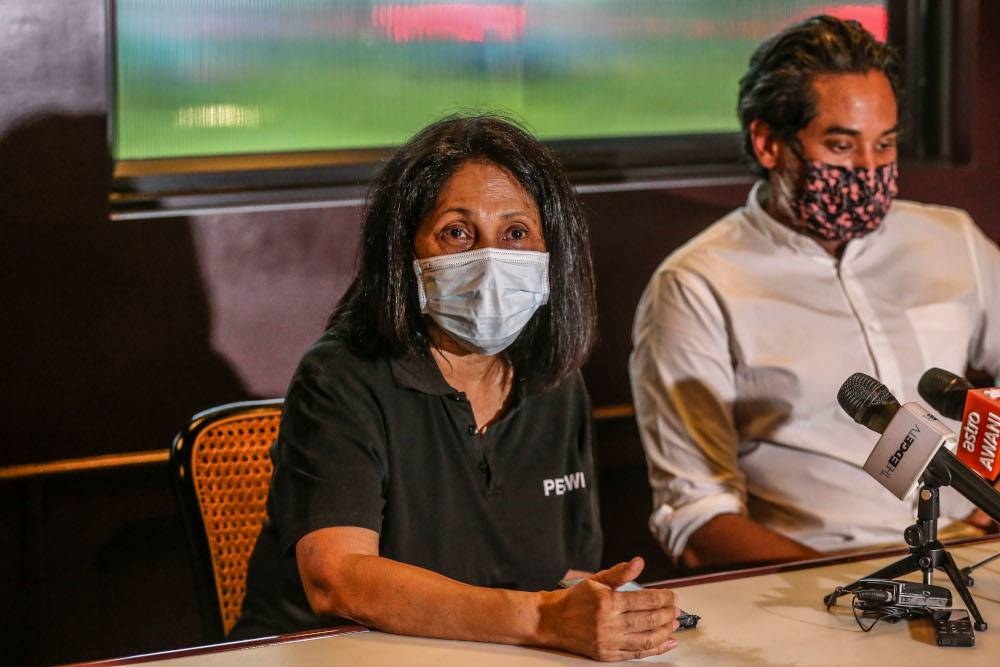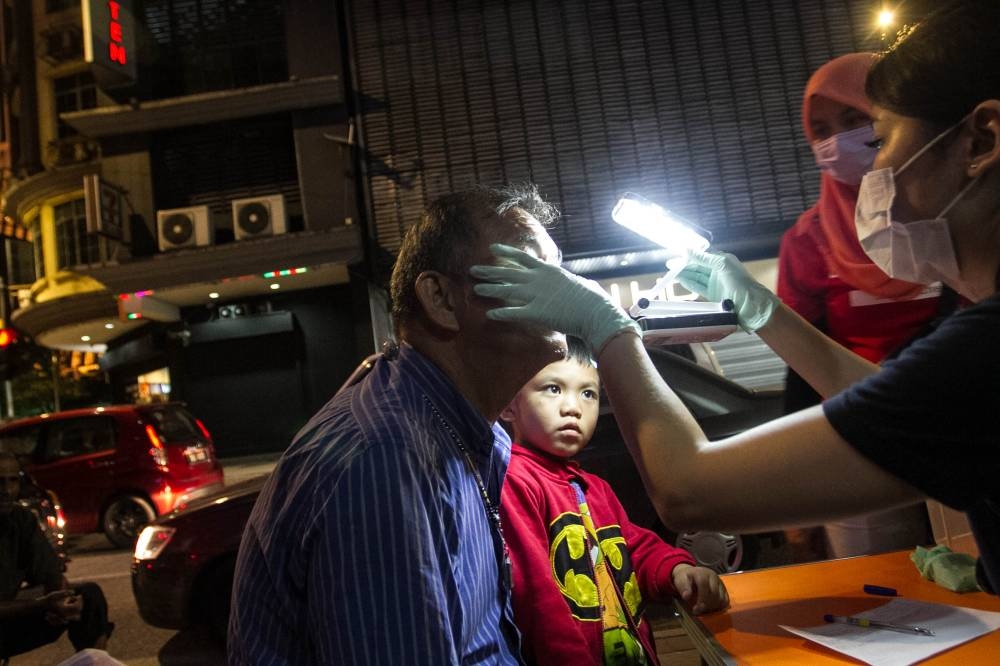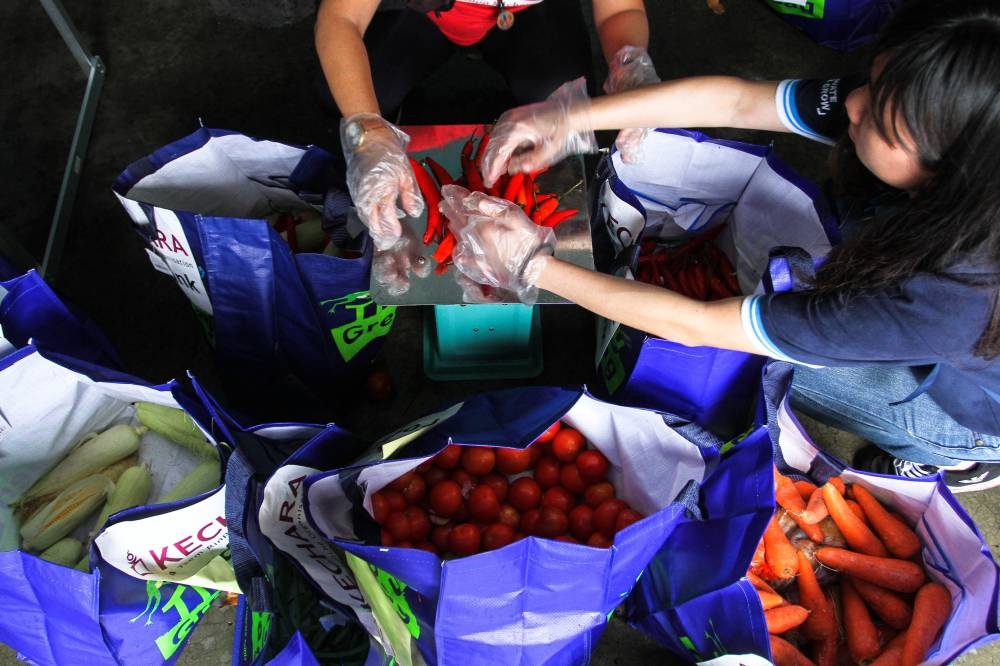KUALA LUMPUR, May 27 — Malaysia’s climbing inflation has caused some soup kitchen operators to worry about their efforts to keep feeding the poor and underprivileged at a time when donations have slowed from the public that was also fighting rising costs.
Two soup kitchens polled by Malay Mail said they have yet to recover financially from the effects Covid-19 has had on the economy, acknowledging that their donors and regular contributors were likely facing similar challenges.
Datuk Munirah Abdul Hamid, the founder of Pertiwi Soup Kitchen, said the number of supporters and the level of contributions have fallen noticeably since the start of the pandemic, forcing her group to try and find other means to compensate.

She also expressed gratitude for her group’s volunteers, which she said helped to minimise the overhead of the soup kitchen.
"So that helps, since all our donations go to the cause and food cost,” she told Malay Mail.
Munirah stressed that while Pertiwi adapted during the pandemic and received some foreign assistance, its core mission of feeding the needy never stopped throughout the entire time and even expanded when the movement control order (MCO) first came into effect.
While not yet alarming, Munirah said the financial crunch was serious enough that she already must plan contingencies to ensure there was no disruption to operations.
Corporate contributions that would typically provide a financial buffer for several months of operations were also no longer coming in reliably, which Munirah said would need her to look elsewhere if these end up not materialising.
However, she acknowledged the economic reality her contributors must also be facing.
“Some companies are not doing well like before, so we can’t expect the same charity among corporations," she said, lamenting that Covid-19 has changed the world irrevocably.
Although admitting she was still seeking “inspiration” for how to make up the shortfall, Munirah what was non-negotiable was to keep Pertiwi’s kitchen running so that it could keep feeding those who most needed its meals.
“We have to help and guide them on how to prioritise, just like how we are doing here now at Pertiwi Soup Kitchen, given the dwindling donations,” she added.
Over at Kechara Soup Kitchen (KSK), operations director Justin Cheah said its operations has also been hit by rising costs and dwindling donations.

KSK was started in 2008 and apart from meals for the poor, it also ran a food bank programme and surplus food programme.
Fully reliant on public contributions that have “significantly dropped” since the pandemic, Cheah said the soup kitchen was now at risk of not having enough to reliably provide meals for the poor as inflation exacerbated matters.
“There are existing sponsors and luckily, they aren’t saying no other than those who have been donating on a regular basis who in some ways, have slowed down. Most of them,” Cheah said.
Like Pertiwi, Cheah said KSK was also looking for new ideas on how to sustain its programmes.
For the Dapur Jalanan and Dapur Kinrara soup kitchens, however, the donations they continue to obtain remain sufficient for their operations.
According to Mohd Ezzuandi Ngadi, the decade-old Dapur Jalanan has always been adaptable to whatever circumstances they faced at the time.
“There definitely have been increases in product costs now and our operating costs have nearly doubled. However, for now our funds are sufficient for us to keep operating,” he said.

Dapur Kinrara deputy chairman Low Chee Wah said his group has been able to keep up with their weekly soup kitchen by maintaining efficiency and serving only vegetarian food.
Although contributions fluctuate from as low as RM300 to over RM1,000 from week to week, Low said these have been sufficient overall to cover costs.
“I’m not worried because for vegetarian food, we have long term contributions. We have got enough actually. We always serve vegetarian food,” Low explained.
Malaysians have been feeling the pinch after prices of food items, particularly poultry, fish and vegetables have risen in recent days, with many taking their grouses to social media platforms, and calling for action from the government.
Some of Malaysia’s favourite dishes are also on the edge of price increases due strains on global wheat supply caused by an export ban in India on top of the disruptions caused by the Russia-Ukraine conflict.
While India accounts for only a fraction of Malaysia’s wheat imports, its decision will worsen the global shortage triggered by Russia’s invasion of Ukraine, both of which are breadbasket nations.
On Sunday, following his announcement that approved permits (APs) are no longer required to import foodstuffs into the country, Prime Minister Datuk Seri Ismail Sabri Yaakob said the AP requirement to import wheat into Malaysia has also been lifted.
Ismail Sabri also ordered all ministries to submit a list of other imported items that required APs so that these can also be removed.
He also instructed the Ministry of Agriculture and Food Industries (MAFI), as well as Ministry of Domestic Trade and Consumer Affairs (KPDNHEP) to monitor, inspect and take action against those who are violating the law.






















